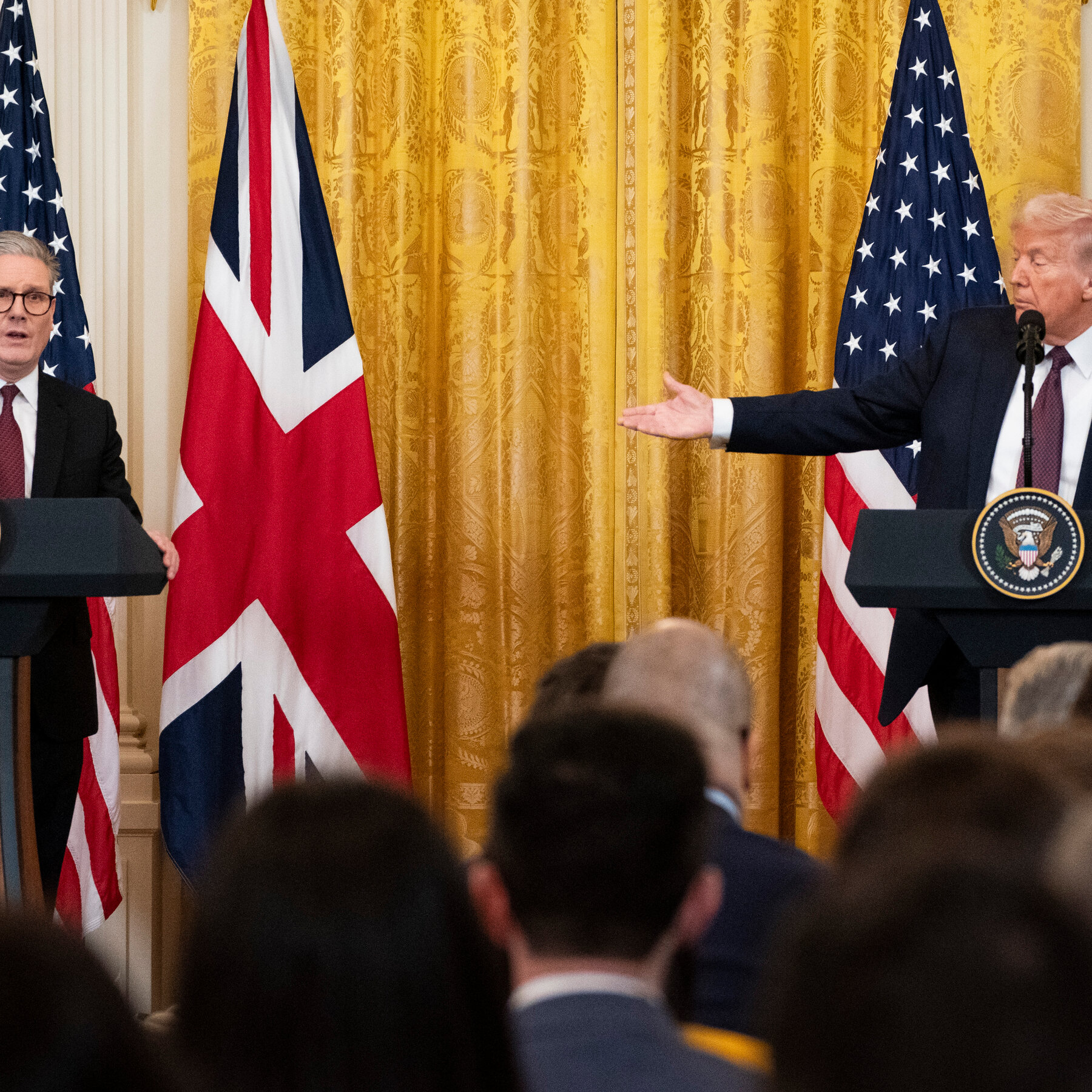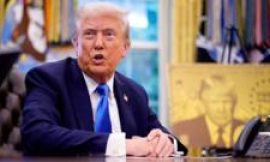The United States and Britain announced on Thursday that they had reached a deal that would reduce tariffs on some imports, such as steel, cars and ethanol, and deepen the economic relationship between the two countries.
There was plenty of mutual congratulating between President Trump in the Oval Office and Keir Starmer, the British prime minister, who dialed in on a speakerphone. “This is a really fantastic, historic day,” Mr. Starmer said.
As the dust settled, though, it became clearer that this was just a framework for a deal and there could be weeks, if not more, of additional negotiations before it became final. Here’s what we know.
It’s the first trade deal since Trump ramped up tariffs.
Mr. Trump’s rewriting of the global trade playbook shocked financial markets, and his administration has been under pressure to reach deals to reduce uncertainty. Mr. Trump said that this deal would be the first of many.
The Trump administration said it would open up export opportunities worth $5 billion for American businesses, while also bringing in $6 billion in tariff revenue.
But Mr. Trump said the final details were still being written up, and British officials said negotiators would continue to try to reduce tariffs not included in this deal.
It’s a narrowly focused deal.
The agreement will come as a huge relief for Britain’s auto industry, which will now face 10 percent tariffs on the first 100,000 cars exported annually to the United States. Britain sent 92,000 vehicles to the United States in 2024, according to data from Oxford Economics.
British officials warned that the higher tariffs, which were about 25 percent, had endangered jobs in the country’s car industry, which sent more than a quarter of its auto exports to the United States.
Britain will also be excluded from tariffs on steel and aluminum. In exchange, it increased the quota on beef imports from the United States and said it would remove a tariff on ethanol, which is used in manufacturing.
Britain said that it would receive “preferential treatment” if any further sectoral tariffs were introduced, such as on pharmaceuticals.
The two countries also have a “high-level” agreement on economic security and would work on building a deeper partnership on technology that would cover life sciences, quantum computing, biotech and other sectors.
There are still open questions.
This deal is not final, and neither side said when it could take effect. The British government said it was still negotiating to bring down the 10 percent tariff on most other goods.
Jonathan Reynolds, Britain’s business and trade secretary, said it was a “landmark breakthrough” but that it only reached the “general terms” that will set out the process for more tariff negotiations.
The British government can declare a victory.
The deal could be derailed before it takes effect. For now, however, it puts Britain in a better position than it was in a few weeks ago. The country’s auto and steel industries were already struggling, so any efforts to shore up their ability to export to the United States, an important market, are welcome.
Also, the agreement so far has not caused Britain to cross its red lines about lowering its auto or food safety standards, which would have impeded a deal with the European Union. Britain did not reduce its own tariffs on cars, as some reports had suggested. Nor did it make any changes to its digital services tax, which the Trump administration had said unfairly harmed American tech giants. That tax was introduced in 2020 as a 2 percent duty on revenues of search engines, social media services and online marketplaces, and most of the revenue has come from big American firms like Amazon and Google.
The Trump administration also scored a win, earning praise from American ranchers to increase exports of beef, though they would still have to be free of hormones. The National Cattlemen’s Beef Association called it a “tremendous win.”
But it’s not an economic game changer.
Despite the agreement, British goods exports in general still face higher tariffs then they did two months ago, with the base line 10 percent tariff still in place.
And Britain’s trading relationship with the United States is heavily skewed toward services, which are not affected by tariffs. Many economists have cautioned that even with a deal, Britain’s economy is vulnerable to global economic uncertainty.
Reducing that uncertainty would require the Trump administration to secure more deals with other countries and make trade policy more predictable.
Ana Swanson contributed reporting from Washington.




